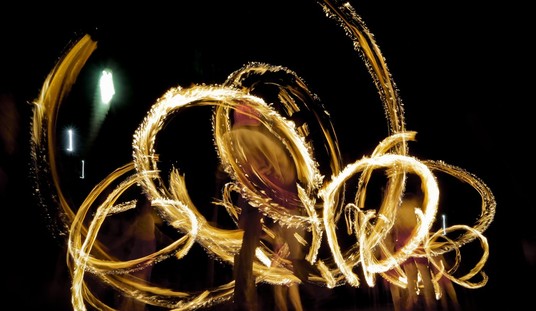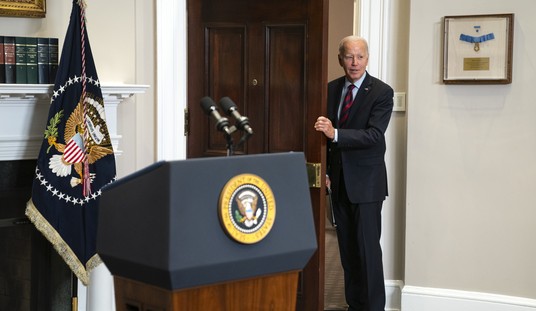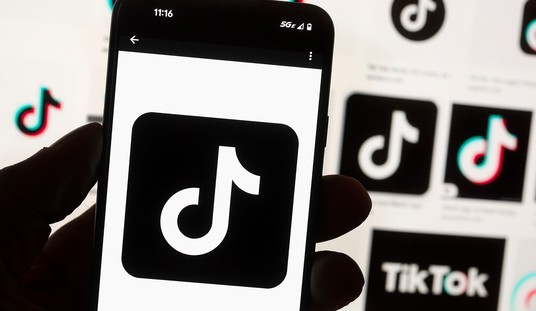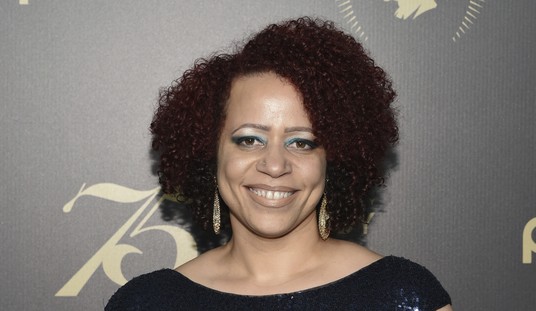In 2008, Barack Obama rode a wave of youth-vote enthusiasm for “Hope and Change” to a seven-point win in the national popular vote. A new poll from Gallup shows that the hope has pretty much dissipated — and Obama might not like the change that has resulted:
Fifty-eight percent of U.S. registered voters aged 18 to 29 say they will “definitely vote” this fall, well below the current national average of 78% and far below 18- to 29-year-olds’ voting intentions in the fall of 2004 and 2008. The 20-percentage-point deficit for young voters versus the national average compares unfavorably with six- and seven-point deficits in the later stages of the 2004 and 2008 elections, respectively.
Young voters were one of the key groups in President Obama’s winning 2008 coalition. They widely support the president this year as well, but historically their turnout levels usually lag behind those of other groups. Thus, the question surrounding young voters is not so much whom they will support as whether they will officially register that support in the voting booth.
The 20-point deficit in turnout intentions for young voters compared with the current national average is the largest among major demographic subgroups.
It’s actually the worst performance in the last three cycles for this demographic — and by a wide margin, and not just in relation to overall enthusiasm. In 2004, when George Bush narrowly defeated John Kerry, 81% of registered voters under 30 said they would definitely cast a ballot in the election. The 2008 cycle actually showed a bit of a decline, down to 78%, but about the same relative position to overall enthusiasm.
Younger voters have the poorest turnout percentages anyway, but a drop to 58% portends the worst turnout in a generation for this demographic, which would be a huge blow to Obama’s re-election chances. It also indicates that Team Obama may find it much more difficult to get volunteers to organize on their behalf. Many of these potential voters are likely more focused on finding an income in an economy that simply isn’t generating any jobs, especially for those entering the workforce — which also would explain the steep drop in planned participation in the upcoming election.
The poll has more bad news for Obama. Middle-aged and senior voters have the highest enthusiasm numbers relative to the average in the past three cycles. Both are at 85% in the Gallup poll, a +7 relative to overall enthusiasm. For seniors, the enthusiasm level is actually an increase from 2008’s 83%. This demographic usually turns out strongest, and in most polls is the most hostile to Obama.
Obama gets further bad news in the ethnic demographics:
Racial and ethnic minorities are another subgroup whose higher turnout in 2008 helped Obama win the presidency. This is especially true for blacks, whose support for Obama exceeded 90%. The percentage of blacks who say they will definitely vote is similar to the national average this year (76% versus 78%), as it was in prior years. However, as with most other groups, it is lower now than it was in the fall of 2004 and 2008.
Non-Hispanic whites are slightly more enthusiastic than the average, a +3 at 81%. Hispanics, whom Obama has assiduously courted (and in some cases pandered), are considerably less enthusiastic than in 2008, both in the percentage (64%, down 13 points from 2008) and relative to overall enthusiasm (-14, down from -8). Enthusiasm among black voters dropped 11 points since 2008, and went from +2 relative to the overall average in 2008 to -2 in 2012. After this week, it’s not likely to bounce upward, either:
The black leaders that attended the NAACP Convention here Thursday heaped praise on Vice President Joe Biden for a heated morning speech, but one question quietly pervaded the gathering: Where was President Obama?
Obama’s decision to skip the annual convention in the heat of his re-election bid has been a point of constant speculation here in recent days, providing a sort of microcosm for how the black community views the nation’s first African-American president as he nears the end of his first term. …
But one former Obama administration official noted to BuzzFeed that the move looked like a snub.
“Even considering the politics here, it seems odd that the first African-American President is sending his vice president to address the NAACP national convention in an election year,” the official said.
Most of the convention’s audience, comprised of black civic leaders, business owners, and community activists, were reluctant to criticize Obama to the press, even as they complained about his neglect off the record — a reflection of a sense of protectiveness among many African-Americans, and an understanding that Obama must at times disappoint.
Clearly, Obama has been disappointing many within his 2008 voter coalition — and that will be a huge problem in November if Obama can’t figure out how to reignite their enthusiasm.







Join the conversation as a VIP Member